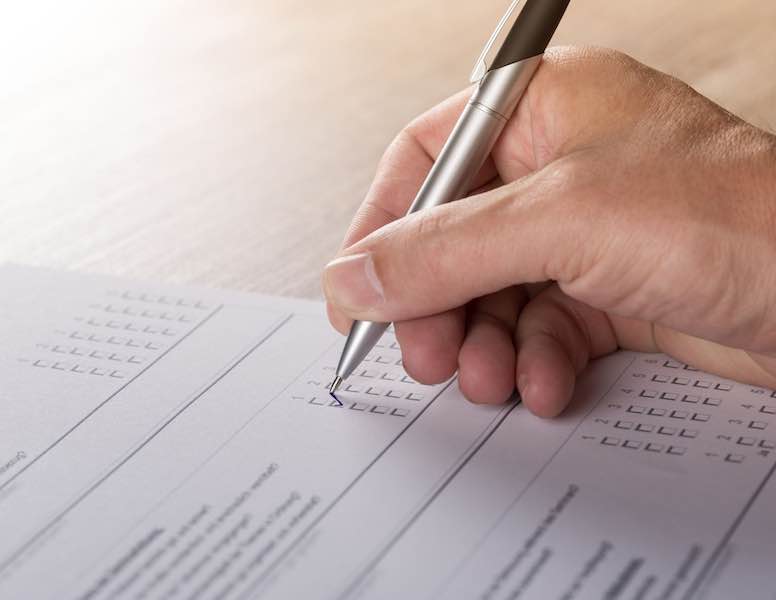Venting in a Police Report – Are you covered by absolute privilege?
by Angelene Cheah Kai Li & Callie Koay Kai Lih ~ 7 September 2021
Picture this

Picture source: VectorStock.com
You discovered that someone said something horrible about you – or worse, that someone had wronged you in a manner most vile that your first impulse is to head to the nearest balai polis to lodge a 20-page police report to vent your frustrations against them.
Guess what? You may have just invited potential defamation suits against yourself. Whilst it is your right to make a police report regarding crimes that come to your notice, you have to do so in a proper manner as there can be legal repercussions depending on the content of your police report.
In Lee Yoke Yam v Chin Keat Seng [2013] 1 MLJ 145 (“Lee Yoke Yam”), the Federal Court held that the defence of absolute privilege applied to the statements made in a police report under Section 107 of the Criminal Procedure Code (‘CPC’). In other words, the maker of a police report has immunity from any defamation suit that may arise based on the contents of the police report. The rationale behind this is the overriding public policy that any member of the public should be encouraged to lodge a police report for any crime that comes to their attention without the fear of being sued for defamation.
So, does this mean that you will be completely immune from all forms of liability when you vent your frustrations in a police report? The short answer to this is no.
While the defence of absolute privilege provides immunity to all makers of police reports, this defence is not applicable in all situations where a police report is involved. As you can imagine, if this was allowed, it would only lead to more people making false or malicious police reports, then relying on the shield of immunity rendered by the defence of absolute privilege. This certainly would not bring any benefit to the public.
This issue was further explored in the case of Nor Aziz bin Mat Isa v Sun Teoh Tia (SAC) (Pengerusi Lembaga Tatatertib Polis Diraja Malaysia Bukit Aman) & Ors [2021] 2 MLJ 142, where the Appellant, a policeman with the Royal Malaysia Police (‘RMP’) was dismissed from service after the disciplinary board found him guilty of insulting the Inspector-General of Police (‘IGP’) in a police report. In the said report, the Appellant described the IGP as ‘bodoh dan dayus’ (stupid and incompetent).
Dissatisfied with the decision of the disciplinary board, the Appellant filed an application for judicial review arguing that the remarks in his police report was protected by absolute privilege and should not have been made the subject matter of the disciplinary proceedings against him under the Public Officers (Conduct and Discipline) Regulations 1993.
The High Court dismissed the judicial review application and held that absolute privilege did not apply since public policy did not require his adverse remarks about the IGP to be protected. The Court of Appeal also affirmed the High Court’s decision.
This case eventually made its way up to the Federal Court where leave was allowed on the question of whether the maker of a police report could be subjected to disciplinary action when police reports made under S. 107 of the CPC were accorded absolute privilege.
The Appellant argued that since the defence of absolute privilege applied to police reports lodged under Section 107 of the CPC, the same should also extend to protect a policeman from disciplinary action for the remarks made in a police report.
On the other hand, the Respondents argued that the rationale for according absolute privilege on the grounds of public policy is to encourage people to lodge police reports and give information about crimes without the fear of the possibility of being sued for something said in the police report. However, the defence should not be extended to the Appellant in this current case as he was using his police report for no other purpose than to vent his anger and frustration against the IGP.
The Federal Court ruled in favour of the Respondents and unanimously dismissed the Appellant’s appeal. The distinguishing factor as to whether the defence of absolute privilege should apply in the Appellant’s case was that the contents of his police report calling the IGP incompetent and stupid was not a genuine complaint to the authorities (to actually report a crime) but merely the Appellant venting his frustration publicly.
“There was no compelling reason to extend the absolute privilege rule to a police report which was lodged for purposes other than for the police to kick-start an investigation into the commission of a crime. In the instant case, the contents of the appellant’s police report in their literal and ordinary meaning meant that the IGP was incompetent and stupid. It was not a genuine complaint to the authorities. The appellant was venting his frustration publicly. His conduct of lodging the police report was not in discharge of his public duty to report crimes or provide information to his colleagues in investigating a suspected crime.”
The Federal Court also held that the defence of absolute privilege is not automatically invoked when a police report is lodged. It also does NOT grant immediate immunity to legal ramifications to the maker of the report, such as shown in the Appellant’s case. The motive behind the lodging of the report needs to fulfil the criteria of reporting a crime, and not to tarnish the reputation and image of a person or organization.
In conclusion, you are not immune to legal suits just because you filed a police report venting your frustrations. As illustrated above, the courts are careful in allowing makers of police reports to conveniently rely on the defence of absolute privilege to avoid any sort of legal repercussion against them for the contents of their reports. The courts would look into the purpose of your police report before allowing you to hide behind the defence of absolute privilege. So, if you’re not actually reporting a crime, it is the writer’s opinion that you should follow the wisdom of the idiom “silence is golden”.

